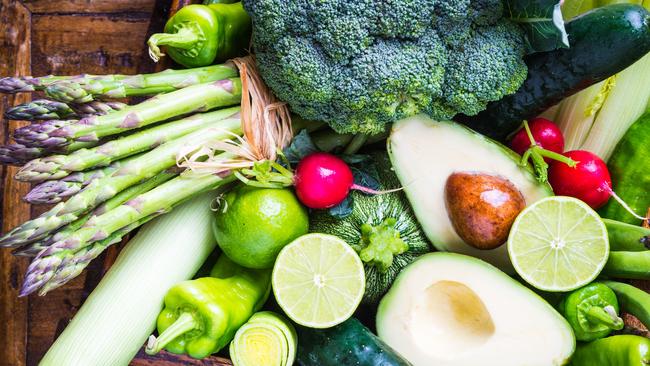Aussies cut back on fruit, veg, holidays and heating
RISING living costs are forcing Australians to make tough choices. New research shows what we are cutting back on to cope.

IF YOU feel like you’re being ripped off — you’re probably right.
Depressing new research shows the rising cost of living is forcing Aussies to cut back on fresh fruit and vegetables, skip holidays and turn the heating off in winter.
The statistics released by life admin experts iSelect today show monthly household bills are rising at just under twice the rate of their income.
“This research underlines that over six million Australians (42 per cent) are feeling overwhelmed
by their rising bills and expenses and that the majority of Aussies (51 per cent or nearly eight million) believe their household bills are preventing them from living their life to the fullest,” said iSelect spokeswoman Laura Crowden.
The Kantar TNS research study, commissioned by iSelect, revealed Australians reportedly
spend an average of $2,374 on their monthly mortgage, rent and household bills, an increase of
almost 40 per cent in the past two years, compared to around a 20 per cent increase in household income.
The rising cost of living, and rapid decrease in disposable income, is taking its toll with almost 60 per cent of Australians believing the high cost of bills and expenses is having a negative impact on their life.
Ms Crowden said the research was evidence that our “lucky country” has transformed into an “expensive country”.
“In an effort to regain control of their finances as they struggle with record house prices and ever increasing energy bills many Aussies are tightening the purse strings on everyday essentials as well as life’s luxuries,” she said.
According to the statistics, one-third of Aussies said they have forgone a holiday to pay their bills and expenses, while a quarter used less heating over winter and 2.3 million Australians (15 per cent) have even cut back on fresh fruit, vegetables and meat.
Ms Crowden said that while cutting back on expenses was important, many Aussies are missing out on savings by sticking with the same household service providers.
“Only 44 per cent of Aussies switched providers in the past year and those that got a better deal
reported saving an average of $790, which adds up to around a staggering $4.3 billion
nationwide,” said Ms Crowden.
“That means there is potentially around $5.4 billion in savings to be made by those
Australians who have stuck with the same providers and as a result could be paying much more
than they need to.”

So how much do you need to be earning in order to enjoy a healthy standard of living?
University of NSW researchers calculated a new basic budget that allows for a healthy level of social participation and to reflect real needs, rather than whether people were living below the poverty line, which is set at 50 per cent of median income.
Researchers considered how much people paid on housing, food, medication, household goods and services, transport as well as lifestyle expenses, exercise and social activities.
While those factors considered necessary for healthy living were included, the report suggests there was no allowance for even the most modest or occasional “luxuries” and the budgets were extremely “tight”.
Most items in the budgets (food, clothing and footwear, and household goods and services) were identified and priced in leading retail stores like Woolworths and Kmart.
It calculated that a single adult would require almost $600 a week to have a reasonable standard of living, while a couple with two children would need to spend $1173.
Chief investigator Professor Peter Saunders, a global expert on social policy from UNSW’s Social Policy Research Centre, said the findings also include the cost of social inclusion.
“The quality of people’s lives cannot be completely represented by the goods they consume and it is important to ensure that the budgets also allow for a degree of social participation that is consistent with healthy living and social inclusion,” he said.




